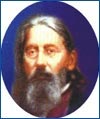Lacerations when the intolerable pain shows nerves are severely involved.
Local congestions: nervous erethism, with or without hemorrhage; great nervous depression following wounds.
Always modifies and sometimes arrests ulceration and sloughing.
Next to the nervous tissues, the joints are affected; all articulations feel bruised.
Contact Injuries etc.
Punctured wounds feel very sore; from treading on nails; rat- bites, etc.; prevents lockjaw.
Wounds from crushing, as mashed fingers, especially tips.
Nerves lacerated pains excruciating.
Relieves pains in old cicatrices, (.
Painful wounds before suppuration.
Rheumatism, bunions, corns, etc., when the pains are so disproportionately severe as to show nerves are attacked.
After a fall, asphyxia.
After a knock or blow on the head, spasms. (. After slight hurt, convulsions: Touch: Rubbing:.
Skin
Great itching when undressing, most in sacral region.
Skin rough, as if full of small knots.
Pimples on forehead, throat, back, hips.
Tetters, beginning with sore places, and forming hard, yellow crusts, with violent itching.
Smarting eruption, like nettle-rash, on the hands.
Relationship
Antidotes to Hyper: Arsen. against weakness or sickness in the morning; Chamom. for pain in face; mesmerism; Sulphur.
Cures where formerly, Aconite and Arnic. were given in alternation in wounds.

